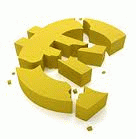So the grand Barack Obama administration foreign policy strategy of trying to square the circle between an Iranian nuclear deal and getting the eurozone economy back on the road slouches towards ... what exactly? (See War and cheeseburgers Asia Times Online, May 22)
The story in Baghdad
The much-anticipated meeting of the five permanent members of the UN Security Council -- the US, China, Russia, Britain and France plus Germany (P5+1) with Iran in Baghdad at least produced a result; a third round of negotiations in Moscow next month.
It couldn't be any other way. A divided P5+1 (the US and the Europeans on one side, BRICS members China and Russia on the other) wanted Iran to totally halt their uranium enrichment to 19.75% -- to which it has a right, as it subscribes to the nuclear Non-Proliferation Treaty (NPT). In exchange, the P5+1 offered a "sanctions-lite" package, allowing the sale of US aircraft spare parts and a vague "assistance" in developing Iran's energy sector.
Tehran was unmoved; to succeed, this P5+1 package had to be "significantly revised and reformed," according to the IRNA news agency. Tehran's ultimate objective in these negotiations is to soften the Security Council sanctions. For the leadership, a schism is very clear between the UN as a whole and the wall of mistrust involving any US government. Both Russia and China support Iran's position.
Tehran even accepts, in principle, the idea of a foreign supply of 19.75% enriched uranium for the production of medical isotopes at its medical reactor. And it might even agree with the International Atomic Energy Agency (IAEA) inspecting the military base in Parchin (although that is not part of the IAEA mandate).
But the key point is still that the P5+1 has turned the NPT into dust. The mantra since 2006 has been the same; Tehran must stop all sorts of uranium enrichment. This is being enforced by a nasty financial blockade whose ultimate aim is essentially to paralyze the Iranian economy -- by preventing it from selling oil using the international banking system.
Unfair doesn't even begin to describe it.
Then steps in the European Union (EU) -- with its extra sanctions cum oil blockade, to be in effect in theory by July 1, in fact going beyond the Security Council sanctions, and virtually illegal to boot. This is compounded by a US law in effect on June 28 forbidding any foreign bank to be involved in payment for Iranian oil.
Yet the Obama administration needs a deal -- be it in Moscow, or beyond. That will be essential for Obama to milk as a foreign policy triumph -- in fact much more substantial than the milking of the Osama bin Laden raid (see Osama re-elects Obama Asia Times Online, May 25). If there is no deal, the Obama administration will have to exert much pressure for the EU to scrap, at least until the end of 2012, the ban on insurance of tankers carrying Iranian oil (EU companies control most of the global maritime insurance industry).
Who's suffering with the sanctions? Not the suspected "regime change" target -- the Tehran leadership. The military dictatorship of the mullahtariat stays comfortably in place with oil above $54 a barrel (Brent crude is at around $106, and West Texas Intermediate at $90). Moreover, Tehran is selling energy in every currency from yuan to Indian rupees, and is engaged in wholesale barter with its customers -- especially Asian.
The bottom line though is clear; the EU will have to scrap its absurd Iranian oil blockade to avoid badly hurting itself and also, by extension, the US economy.
The story in Brussels
(Note: You can view every article as one long page if you sign up as an Advocate Member, or higher).






